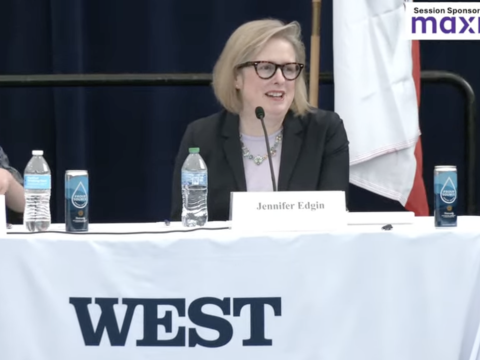U.S. Army Uses New Path To Bypass Data Sharing Barriers
U.S. Army Pacific (USARPAC) leaders have found a new way to maneuver pain points when it comes to sharing information between several countries.
Before delving into how crews are eluding these hindrances, the leaders expressed it’s important to identify which issues are the biggest hurdles for Army officials within this area. During a discussion on enabling coalition communications for the future fight held at TechNet Indo-Pacific 2024, Col. Alton Johnson, assistant chief of staff, G-6 USARPAC, said that he classifies law and policy as the biggest preventative measures when it comes to sharing data internationally. Col. Johnson stressed that these problems were more pressing than others, such as funding or technology.
“It’s not a technical problem, because we can connect them all to certain systems and be able to share information and provide data,” Col. Johnson said during a panel discussion at TechNet Indo-Pacific 2024. “It’s how we segregate that information and give the various partners that we work with the assurance that they have the ability to control and maintain their own data, that it’s not at risk and that they’re comfortable sharing it with certain partners and not others. So, policy prevents us from getting there because there are things that limit our ability to share that information across the board.”
Col. Johnson offered a specific example of how policy made a situation much more difficult than it needed to be. He said that USARPAC officials were working on adding a third country to a two-party exercise, but when they moved to transfer that data to the new nation, Army leaders said that the information was classified and that it needed to be reclassified. This process involved 30 to 40 organizations whose jobs were to review the data to determine if reclassification was permitted.
Luckily for the USARPAC folks, Col. Johnson said they were able to create a workaround, and that’s where this identity credentialing and access management (ICAM) idea comes into play. This piece of technology is part of the zero-trust space, and it allows for parties to control who sees certain data. ICAM enables additional groups of people to access information without presenting a risk that they will obtain other data that they were not supposed to receive.
Crews accomplished this by converging the three countries into one technical solution, and after completing an interservice agreement, they placed the information into an environment that was accessible by the third party, according to Col. Johnson. The U.S. still managed what information was released to the environment.
“It was still controlled,” Col. Johnson said. “They couldn’t reach the network, but they were able to see the data they needed to execute their mission with the permission of everyone involved. So, that’s a good example of where industry can be helpful and how we can get around that.”
However, performing this procedure every time a policy or law creates an issue could lead to some problems, the colonel warned.
“The work of the U.S. or whoever the controlling organization is to do that as many times as required, to release information and to change the classification of it for every partner, the work increases exponentially,” he said. “It’s not doable, and so that’s where we need things like AI and ML to help us make those decisions; to help push that data into correct places, into correct classifications, make it available and then we have to build that trust once again, because if the users don’t trust that their data is being secure, then even that tactical solution will falter at the whim of those using it.”
Looking ahead, crews will incorporate additional command control systems in addition to ICAM, but Col. Johnson said that these innovations should not be necessary.
“We continue to experiment, continue to push the ball forward, but what we’ve got to do is get to a point where it’s not so difficult and it’s not so much work to prepare for everyone,” he said.
TechNet Indo-Pacific is organized by AFCEA International and the AFCEA Hawaii Chapter. SIGNAL Media is the official media of AFCEA International.



Comments